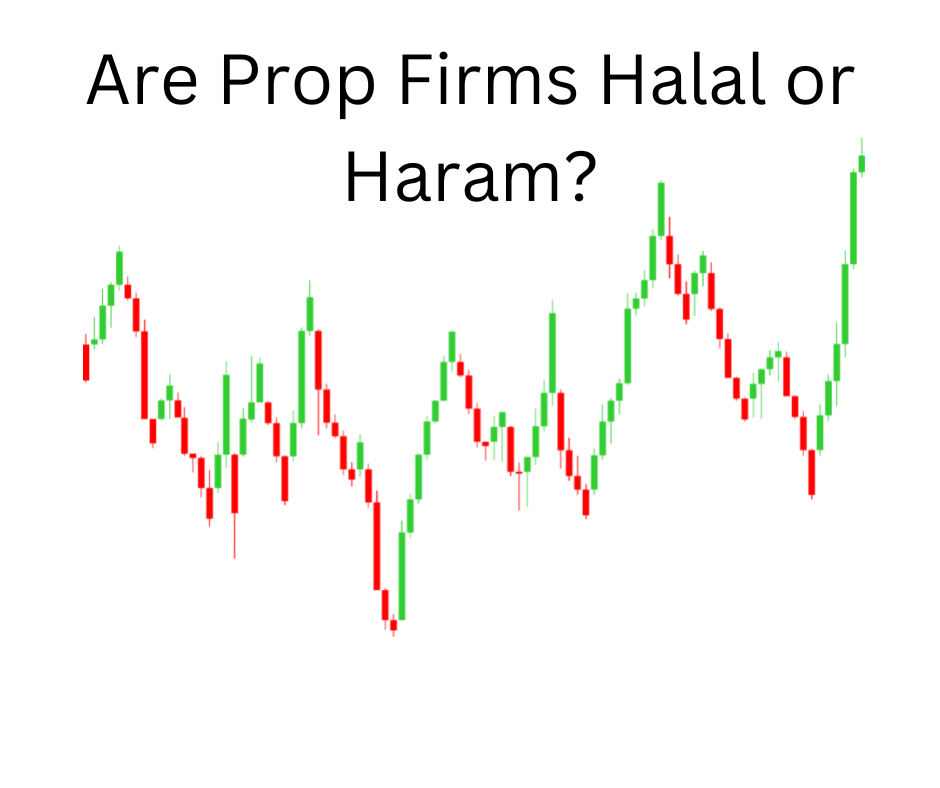Prop trading, also known as proprietary trading, involves trading financial assets on behalf of a firm. Many Muslims wonder whether prop trading and indeed Forex trading are halal or haram.
In this article, I will delve into whether prop firms are halal or haram and provide insight into the various aspects of Forex trading that Muslims need to consider.
What is prop trading?
Prop trading involves trading financial assets using a firm’s own funds rather than trading on behalf of clients.
Prop firms typically hire traders, including Forex, stocks, and options, to trade financial assets. Prop traders are often given access to large amounts of capital to use for trading, with the aim of generating significant profits for the firm.
Prop trading is popular among traders because it provides an opportunity to trade with substantial amounts of capital, which would otherwise be difficult to obtain. Prop traders can also access advanced trading tools and technology that are not available to retail traders.

Is Forex Trading Technically Gambling?
One of the most significant concerns for Muslims when it comes to Forex trading is whether it is considered gambling. Gambling is haram or forbidden in Islam, and Muslims are prohibited from participating in any activity involving speculation, uncertainty, or chance.
Forex trading, however, is not technically considered gambling. Forex trading involves buying and selling currency pairs with the aim of making a profit from price fluctuations. Although risk is involved in Forex trading, it is not based solely on chance, as traders use analysis and technical indicators to make trading decisions.
Using a Swap Free Account to Trade Forex as a Muslim
One of the key concerns for Muslims regarding Forex trading is the use of swap rates. Swap rates are the fees charged for holding a position overnight, and they are an essential component of Forex trading. However, swap rates are not considered halal in Islam, as they are viewed as a form of interest, which is haram.
Fortunately, many Forex brokers now offer swap-free accounts that are compliant with Islamic principles. A swap-free account operates on the basis of a no-interest system, which means that traders are not charged or paid any interest for holding positions overnight.
Instead, the broker may charge a flat fee or adjust the spreads to compensate for the lack of swap rates.
If you are a Muslim trader, using a swap-free account is an excellent way to trade Forex without compromising your religious beliefs.
Is Forex Trading Haram or Halal?
The question of whether Forex trading is halal or haram is a complex one. While Forex trading is not inherently haram, it can be haram if it involves elements that are prohibited in Islam.
For example, trading on margin, which involves borrowing funds to trade, is considered haram in Islam because it involves the payment of interest.
However, if you trade Forex in a Shariah-compliant manner, it can be considered halal.
This means trading on a swap-free account and ensuring that all trades are made with the intention of making a profit from the price fluctuations, rather than relying on chance or speculation.
What if the prop firm gives you a demo account?
Some prop firms offer traders demo accounts to practice trading with before they are given access to live accounts. While demo accounts do not involve the use of real funds, they can be an excellent way to test trading strategies and gain experience in Forex trading.
Using a demo account provided by a prop firm is not considered haram, as it does not involve using real funds or paying interest. However, it is essential to ensure that any trading strategies used on a demo account are Shariah-compliant, as this will ensure that they are also compliant when trading on a live account.
When trading with a prop firm, it is crucial to ensure that you fully understand the terms and conditions of the trading agreement. Some prop firms may require traders to sign contracts that include not Shariah-compliant clauses.
If you are unsure, it is essential to read and understand the contract thoroughly and seek advice from a knowledgeable Islamic scholar.
It is also essential to ensure that the prop firm you are trading with is reputable and has a good track record. Research and read other traders’ reviews before committing to a prop firm.
My Forex Funds offers Swap-Free accounts

Conclusion
In conclusion, prop trading is not inherently haram, but it can be if it involves elements that are prohibited in Islam. Muslim traders who wish to participate in prop trading should ensure that they trade in a Shariah-compliant manner, using swap-free accounts and avoiding trading on margin.
Using a demo account provided by a prop firm is not considered haram, as long as any trading strategies used are Shariah-compliant. However, ensuring that any trading agreements or contracts are also Shariah-compliant and that the prop firm you are trading with is reputable is essential.
By following these guidelines and seeking advice from knowledgeable Islamic scholars, Muslim traders can participate in prop trading while remaining true to their religious beliefs.
